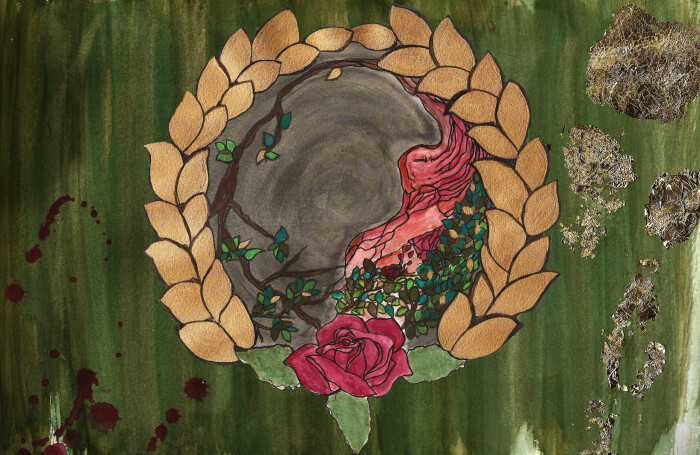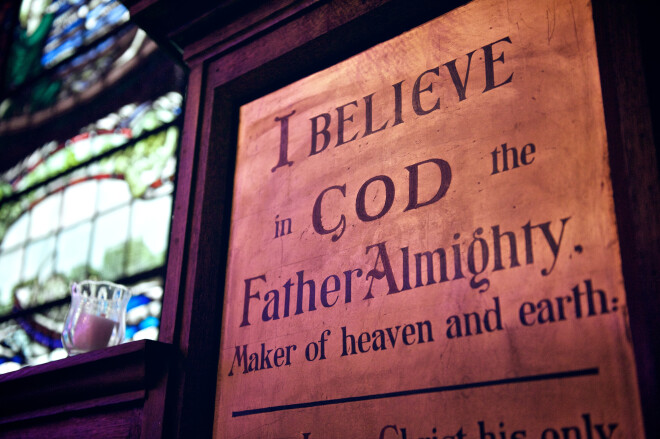Something Costly: A Conversation About Faith and Art With Bethany Lynam
What first drew you to the arts? When did you begin to consider their relationship with the church?
As a kid, a lot of things within the arts were just where I felt like God’s truth was clearly seen and felt for me. So I kept doing them. Only later did I connect that the trail I was following wasn't necessarily the arts, but Beauty. Sadly, it had almost nothing to do with what I experienced from the church, but everything with what I read in the Bible on my own,
How could the wider church do a better job of encouraging artists in their vocation?
A good start is to try. Art, done well, is not obvious. So you’re not necessarily going to “get it” right away. You have to spend some time with it. Try to enter the conversation. Secondly, trust your artists. Trust that the artist’s eyes are seeing something you may have missed… not a different truth at all, but perhaps a different facet of an infinite one. Lastly, artists, by definition, are very powerful communicators. The church needs to train artists as she would any other powerful communicator or leader in the body. Oh! Also…PAY THEM!
What draws you to use gold leave so often in your work as opposed to other materials and mediums at your disposal?
Gold is so intuitively symbolic. It speaks so naturally to something sacred, pure, and worthy, in such an accessible way.
What are some of the aspects of your work that convey the tension and complexity of 2 Corinthians as it traverses between hope and struggle?
Probably the one image that most succinctly communicates all that I wanted to for the 2 Corinthians study is the round emblem encircled by the gold victory wreath. In that image I feature the subject being literally ripped apart before transforming into a branch that begins with scarce leaves and ends covered in foliage that supports

What were the ideas and themes which led you to apply gold leaf so prominently in the pieces that you produced for our Faith + Work series.
The presence of the gold being placed only where the hand meets the “soil” speaks to the fruitfulness that can only come from work. But, I was careful not to make the hands gold even though their motion transforms the soil. This is so the gold is not attributed to the soil or the hands. There is a real part of the gold the only comes when the hand meets the soil, but neither hand nor soil can take credit. This is how real fruitfulness is. God does it all. It’s this kind of paradox: we may be obedient in


How does the gospel shape your overall approach to creativity and the arts?
The most formational connection the gospel has with my work comes from one of my favorite Bible passages. When Christ is in the city of Bethany, after Lazarus had died and been raised, the famous and scandalous anointing of Christ takes place. Mary dumps the entirety of this very expensive perfume, and all of its weighty connotations, all over Christ’s head. This woman just spills everything she is onto Christ in this off-putting, untimely, moving, beautiful mess, without any self-preserving hesitance! So that’s all my art is. Something costly spilled with tears & graphite.
What encouragement would you offer to a Christian who is passionate about art and creativity but struggles to see how it connects with their faith?
Well, I have never met a creative who has not seen the connection between their creativity and their identity. The largest struggle for the Christian artist I think is to lay that down. Your first sense of identity cannot be “artist, musician, writer, filmmaker” etc. It is now “Christian.” One of the most precious truths of our faith is found in this sweet paradox…”Whoever would save his life will lose it, but whoever loses his life for my sake will find it.” (Matt. 16:25) As far as specific ways the artist works within the church?….Just like everyone else. We serve where there is a need. If you have offered your artistic expertise and have received a “No thanks, not at this time”, look at the gifts that make you good at what you do artistically. Are there other ways or places those strengths can be applied?


